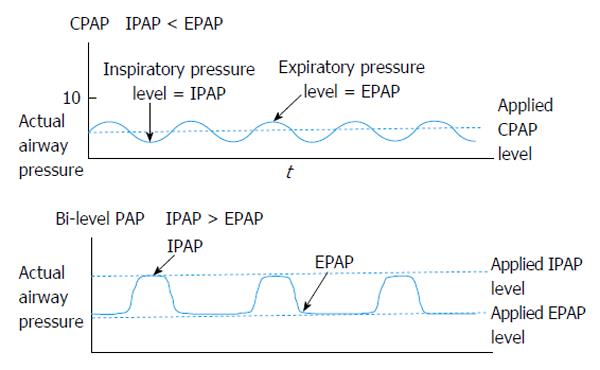Pressure airway positive 1175 wjc continuous therapy i11 v6 bi level
Table of Contents
Table of Contents
Do you suffer from sleep apnea? Does it affect your daily life? If so, you’re not alone. Continuous positive airway pressure therapy (CPAP) has been shown to be effective in improving the quality of life for those who suffer from sleep apnea.
The pain points of CPAP therapy
CPAP therapy can be uncomfortable and inconvenient for some people. Some may find it difficult to adjust to wearing a mask while they sleep. Others may experience dry or stuffy noses and discomfort from the high pressure of the air. Despite these pain points, however, CPAP therapy has helped many people alleviate the symptoms of sleep apnea and enjoy a better quality of life.
The target of CPAP therapy
The target of CPAP therapy is to keep the airway open during sleep so that air can flow freely into the lungs. This helps to reduce or eliminate snoring, improve sleep quality, and alleviate symptoms of sleep apnea such as excessive daytime sleepiness, morning headaches, and irritability.
Summary of the main points
CPAP therapy is effective in improving the quality of life for those who suffer from sleep apnea. Despite some discomfort and inconvenience, CPAP therapy has helped many people alleviate the symptoms of sleep apnea.
The benefits of CPAP therapy
Using CPAP therapy can have many benefits. Not only can it help alleviate symptoms of sleep apnea, but it can also improve your overall health. According to recent studies, CPAP therapy has been shown to improve heart function, reduce the risk of cardiovascular disease, and even help with weight loss.
Personally, I have found that since using CPAP therapy, my energy levels have increased, and my mood has improved. I wake up feeling more rested and ready to take on the day.
CPAP therapy and its impact on relationships
CPAP therapy can also have an impact on relationships. Snoring can be a major issue for couples who sleep in the same bed, leading to disrupted sleep and resentment. By reducing or eliminating snoring, CPAP therapy can improve the quality of sleep for both partners and ultimately lead to a healthier and happier relationship.
The role of healthcare providers
Healthcare providers play an important role in education and support for CPAP therapy. Patients should be properly educated on how to use the equipment, and healthcare providers should follow up regularly to ensure that the therapy is effective and comfortable for the patient.
Understanding the equipment
It’s important to understand the different types of CPAP machines and masks available to find the one that works best for you. Some masks are designed to be more comfortable, while others provide a better seal on the face for those with a lot of facial hair or facial irregularities.
Question and Answer section
Q: Is CPAP therapy uncomfortable?
A: While some people may find CPAP therapy uncomfortable or inconvenient at first, many people find that it becomes easier as they become accustomed to wearing the mask and using the equipment. There are also many different types of masks and machines available to help patients find the most comfortable fit.
Q: Can CPAP therapy help with weight loss?
A: Studies have shown that CPAP therapy can help with weight loss by improving sleep quality and reducing snacking. When the body gets enough restful sleep, it produces less of the hormone ghrelin, which is associated with hunger cravings and weight gain.
Q: Can CPAP therapy improve heart function?
A: Yes, studies have shown that CPAP therapy can improve heart function by reducing inflammation and oxidative stress in the body. This can reduce the risk of cardiovascular disease in patients with sleep apnea.
Q: How can healthcare providers help patients with CPAP therapy?
A: Healthcare providers should educate patients on the proper use and maintenance of CPAP equipment. They should also follow up regularly to ensure that the therapy is effective and comfortable for the patient.
Conclusion of CPAP therapy and quality of life improvement
Continuous positive airway pressure therapy can be uncomfortable and inconvenient at first, but it has been shown to be effective in improving the quality of life for those who suffer from sleep apnea. By keeping the airway open during sleep, CPAP therapy can reduce or eliminate snoring, improve sleep quality, and alleviate symptoms of sleep apnea. Additionally, CPAP therapy can improve heart function, reduce the risk of cardiovascular disease, and even help with weight loss. If you suffer from sleep apnea, talk to your healthcare provider about CPAP therapy and whether it might be right for you.
Gallery
Mechanism Of Action Of Continuous Positive Airway Pressure Therapy IV

Photo Credit by: bing.com / airway pressure positive continuous therapy iv
Positive Airway Pressure Therapy For Heart Failure

Photo Credit by: bing.com / pressure airway positive 1175 wjc continuous therapy i11 v6 bi level
Continuous Positive Airway Pressure (CPAP) Devices Market

Photo Credit by: bing.com / pressure positive airway continuous cpap devices types market machine breathing bipap different insights premium press release
Continuous Positive Airway Pressure Therapy | Nursing Information

Photo Credit by: bing.com / pressure continuous positive airway therapy
Continuous Positive Airway Pressure (CPAP) -Therapie

Photo Credit by: bing.com / cpap apnea airway nasal sleepers suffering bipap snoring therapie hable dificultades prism somsak eyeem using copd galeon fitnesslifestylehealthclub

